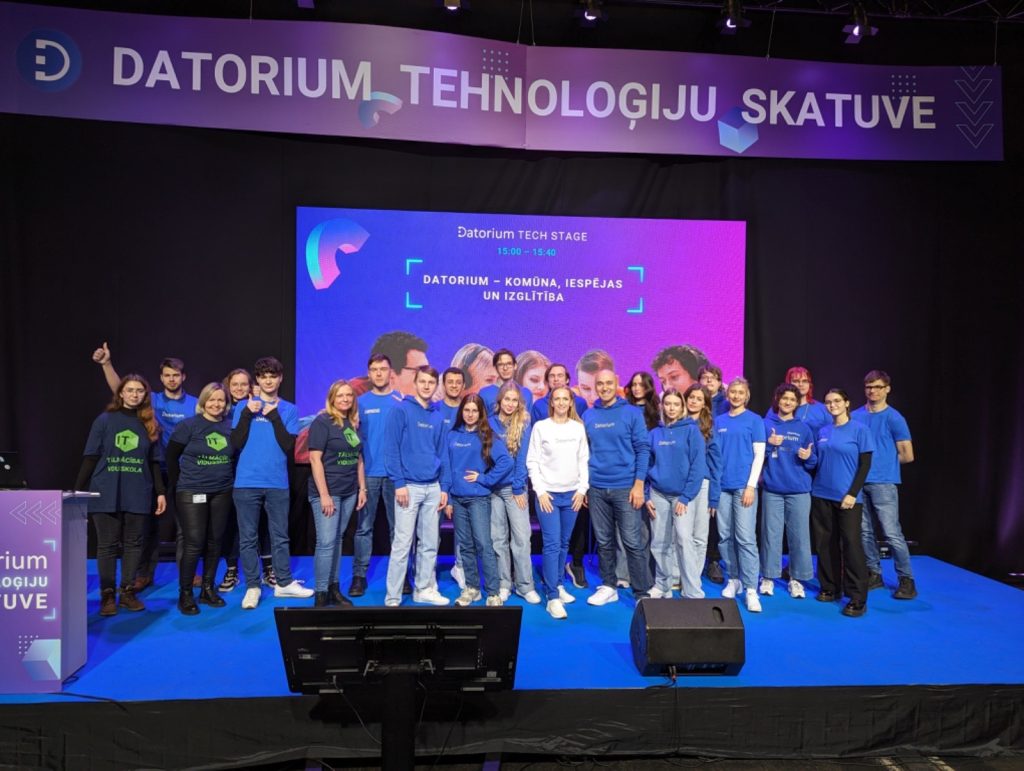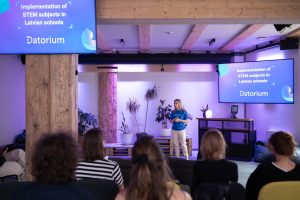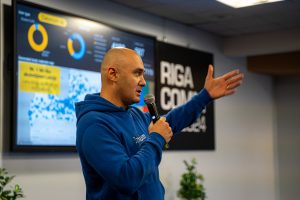In Latvia, there has been a significant shortage of qualified STEM (Science, Technology, Engineering, and Mathematics) teachers for several years, particularly in programming and digital skills. This issue is prevalent not only in Latvia but also in many European and global nations. One of the main reasons for this is the rapid technological development that has left education systems unable to keep pace in preparing teachers for the evolving digital age. Furthermore, fewer young people pursue teaching careers after high school. According to statistics, the number of students training for teaching qualifications has significantly declined over the past three years.
In Latvia specifically, these challenges have left thousands of students undereducated or entirely uneducated in these fields, which negatively impacts their competitiveness and future career prospects. As a result, the nation risks losing many potential specialists in science and technology professions, a problem even more pronounced in rural areas. Does this mean students should be left without opportunities to learn these subjects?
The Latvian educational technology company Datorium has introduced a solution that leverages a modern, technology-based education system now implemented in 89 state schools, effectively teaching around 5,000 students weekly. This project uniquely addresses the shortage of qualified digital skills, programming, and STEM teachers by using Datorium’s own educational technologies and innovative teaching methods in line with national education standards. Datorium’s teaching approach employs a hybrid education model, increasingly popular in Europe, which blends face-to-face and online instruction. Additionally, a gamification method significantly increases student engagement and motivation, combining online and offline learning experiences.
The core of the Datorium solution lies in technology that captures different aspects of student learning and participation, including interactive engagement, online collaboration, teamwork, and immediate feedback. These modern techniques rely heavily on technology, leading the Datorium team to develop a unique bot that automatically assists teachers throughout the instructional process. This innovative system uses tokenization, awarding tokens or points to students for each educational activity.
The project has shown remarkable results to date, engaging and educating approximately 10,000 students over three years, primarily in programming and digital skills. Around 220 teachers are involved, enhancing their digital and educational technology skills. Datorium has supported teacher proficiency in digital tools and their application in education. In the last six months alone, the company has trained 800 teachers across Latvia in effectively using artificial intelligence in education, enhancing productivity. Datorium also created Latvia’s first AI teacher assistant tool, generating quality educational materials for various subjects according to Latvian education standards.
Datorium’s educational technology is gradually gaining recognition at the European level. In 2023, the company completed the European Commission’s EU Digital Education Accelerator program, where it was selected as one of the six most promising EdTech projects in Europe. That same year, Datorium presented its insights at Finland’s largest educational event, Educa, and met with Finland’s Minister of Education.
This year, Datorium was invited to share its experience on stage at Europe’s largest educational technology exhibition, UK Bett 2024, and at the Netherlands’ leading event, IPON 2024. The company supports youth in competitions and hackathons while continuously creating innovations like Datorium Tech Stage, Latvia’s largest youth technology event, alongside hackathons, games, and summer camps. Datorium actively supports European Commission initiatives such as EU CodeWeek and DigiEduHack.
Looking ahead, Datorium is dedicated to ensuring quality STEM education for every Latvian student and supporting teachers in this field. Its experience and recognition confirm that digital education is not just a path to personal growth and prosperity but also vital for national competitiveness in global markets.




